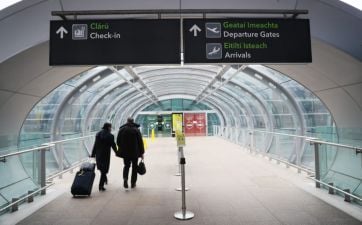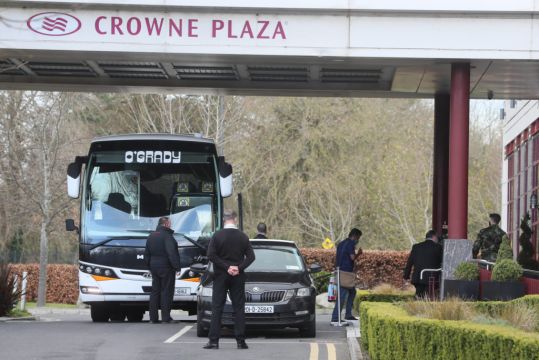Of the 59 'designated states' whose passengers are required to complete two weeks of mandatory hotel quarantine, 12 have a Covid-19 incidence rate below 10.
Seventeen of these countries also have a rate lower than any country in Europe, and 28 have rates below that of Ireland's (157.12).
On Thursday, 26 states were added to the Government's hotel quarantine list. Despite recommendations from the Travel Expert Advisory Group, countries such as Italy, France, Germany and the United States were omitted.
Although the incidence of the virus is increasing across Europe, legal issues surrounding the freedom of movement within EU member states was cited as a factor in such countries being left off the hotel quarantine list. When the list was started, Minister for Health Stephen Donnelly said it would be updated as needed, depending on the prevalence of the virus in respective countries and the identification of any variants of concern.
However, data from the European Centre for Disease Prevention and Control (ECDC) relating to Week 12 of 2021 (ending March 28th), shows Iceland had the lowest incidence of Covid-19 among all EU and European Economic Area (EEA) countries, recording 27.46 cases of Covid-19 per 100,000 people. Meanwhile, Tanzania in Africa, which is on the designated states list, reported an incidence rate of zero for the same period.
While 20 countries on the list required to complete hotel quarantine have rates of less than 100, only two EU/EEA countries — Iceland and Portugal — can say the same.
Under the EU freedom of movement, which is also extended to members of the EEA and Switzerland, citizens have the right to move freely between states, while the Common Travel Area (CTA) agreement with the UK also guarantees the free movement of Irish, British and Northern Irish citizens between the Ireland and Britain.
The above map shows the incidence rates of EU and EEA countries, as well as the UK and Switzerland, representing all the countries with whom Ireland has open travel arrangements.
While Covid restrictions, such as the need to supply a negative Covid-19 PCR test and the requirement to complete a period of self-isolation have been enforced by individual states, placing any of these countries on the designated states list could infringe on the freedom of movement and the CTA.
When travelling to the Republic of Ireland from a designated state, passengers are asked to supply details of their pre-booked and pre-paid hotel quarantine. If they fail to do so, they are not permitted to travel.
Meanwhile, passengers coming from countries not on the designated states list must only supply a negative PCR test, fill out the Covid-19 passenger locator form, and complete the quarantine period at the address they have supplied on the locator form.
Below is the list of states from which passengers must complete the 14-day quarantine in a State assigned hotel. The colours and ranges correspond to the European map above for ease of comparison.
The ECDC data shows that some EU/EEA countries may pose an equal risk, if not more, of importing Covid-19 cases as those on the designated states list.
Twelve EU/EEA countries have incidence rates in excess of 500, while only seven countries in the same group have rates below 200, one of which being Ireland.

Seven non-EU/EEA countries in Europe, with whom Ireland has no open travel arrangement, are now on the designated states list; Moldova, Kosovo, North Macedonia, Andorra, Serbia, Montenegro and San Marino, the later two having incidence rates over the 1,000 mark.
The threat of importing Covid-19 cases and variants in an ongoing concern for public health officials, with members of the National Public Health Emergency Team (Nphet) calling for uniform quarantine measures for arrivals from all countries.
Despite their omission in this week's update of the list, the Sunday Business Post reports Mr Donnelly is still hoping to further expand the designated states list.
The paper reports the Minister is continuing to push for the addition of countries such as France, Italy, Germany and the US, despite resistance from Fine Gael.







